Related Research Articles
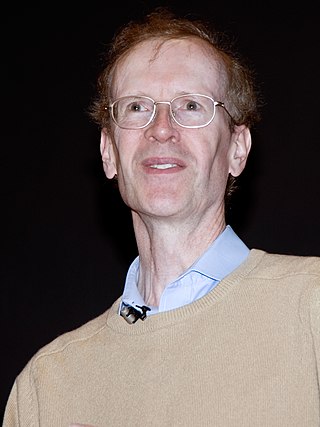
Sir Andrew John Wiles is an English mathematician and a Royal Society Research Professor at the University of Oxford, specialising in number theory. He is best known for proving Fermat's Last Theorem, for which he was awarded the 2016 Abel Prize and the 2017 Copley Medal and for which he was appointed a Knight Commander of the Order of the British Empire in 2000. In 2018, Wiles was appointed the first Regius Professor of Mathematics at Oxford. Wiles is also a 1997 MacArthur Fellow.
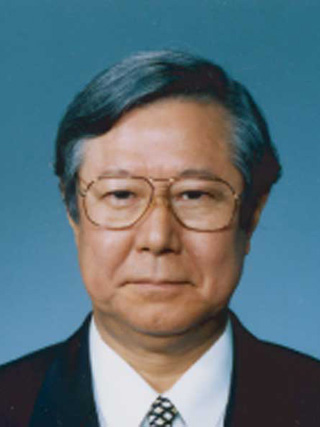
Heisuke Hironaka is a Japanese mathematician who was awarded the Fields Medal in 1970 for his contributions to algebraic geometry.
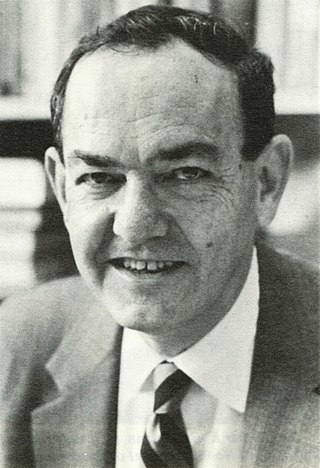
Herbert Alexander Simon was an American political scientist whose work also influenced the fields of computer science, economics, and cognitive psychology. His primary research interest was decision-making within organizations and he is best known for the theories of "bounded rationality" and "satisficing". He received the Nobel Memorial Prize in Economic Sciences in 1978 and the Turing Award in computer science in 1975. His research was noted for its interdisciplinary nature, spanning the fields of cognitive science, computer science, public administration, management, and political science. He was at Carnegie Mellon University for most of his career, from 1949 to 2001, where he helped found the Carnegie Mellon School of Computer Science, one of the first such departments in the world.

Good Will Hunting is a 1997 American drama film directed by Gus Van Sant and written by Ben Affleck and Matt Damon. It stars Robin Williams, Damon, Affleck, Stellan Skarsgård and Minnie Driver. The film tells the story of janitor Will Hunting, whose mathematical genius is discovered by a professor at MIT.

The SAT is a standardized test widely used for college admissions in the United States. Since its debut in 1926, its name and scoring have changed several times. For much of its history, it was called the Scholastic Aptitude Test and had two components, Verbal and Mathematical, each of which was scored on a range from 200 to 800. Later it was called the Scholastic Assessment Test, then the SAT I: Reasoning Test, then the SAT Reasoning Test, then simply the SAT.
The Hampshire College Summer Studies in Mathematics (HCSSiM) is an American residential program for mathematically talented high school students. The program has been conducted each summer since 1971, with the exceptions of 1981 and 1996, and has more than 1500 alumni. Due to the Coronavirus pandemic, the 2020 Summer Studies ran online for a shortened program of four weeks.
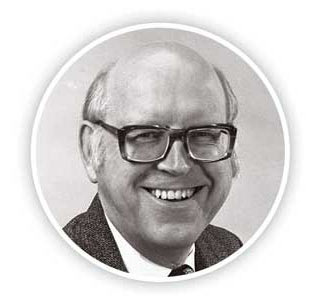
Allen Newell was an American researcher in computer science and cognitive psychology at the RAND Corporation and at Carnegie Mellon University's School of Computer Science, Tepper School of Business, and Department of Psychology. He contributed to the Information Processing Language (1956) and two of the earliest AI programs, the Logic Theorist (1956) and the General Problem Solver (1957). He was awarded the ACM's A.M. Turing Award along with Herbert A. Simon in 1975 for their contributions to artificial intelligence and the psychology of human cognition.

Noam David Elkies is a professor of mathematics at Harvard University. At the age of 26, he became the youngest professor to receive tenure at Harvard. He is also a pianist, chess national master and a chess composer.
Robert Duncan Luce was an American mathematician and social scientist, and one of the most preeminent figures in the field of mathematical psychology. At the end of his life, he held the position of Distinguished Research Professor of Cognitive Science at the University of California, Irvine.
John Robert Anderson is a Canadian-born American psychologist. He is currently professor of Psychology and Computer Science at Carnegie Mellon University.
Mathematical anxiety, also known as math phobia, is a feeling of tension and anxiety that interferes with the manipulation of numbers and the solving of mathematical problems in daily life and academic situations.
Robert S. Siegler is an American psychologist and professor of psychology at Columbia University. He is a recipient of the American Psychological Association's 2005 Distinguished Scientific Contribution Award.
Math 55 is a two-semester freshman undergraduate mathematics course at Harvard University founded by Lynn Loomis and Shlomo Sternberg. The official titles of the course are Studies in Algebra and Group Theory and Studies in Real and Complex Analysis. Previously, the official title was Honors Advanced Calculus and Linear Algebra.
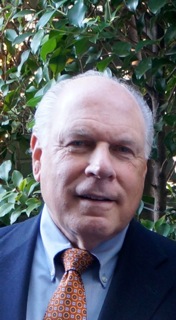
Alfred S. Posamentier is an American educator and a lead commentator on American math and science education, regularly contributing to The New York Times and other news publications. He has created original math and science curricula, emphasized the need for increased math and science funding, promulgated criteria by which to select math and science educators, advocated the importance of involving parents in K-12 math and science education, and provided myriad curricular solutions for teaching critical thinking in math.
James G. Greeno was an American experimental psychologist and learning scientist whose research focused on learning and problem solving with conceptual understanding, using scientific concepts and methods of association theory, computational cognitive modeling, and discourse analysis.
Abraham Lee Wickelgren is an American lawyer who is currently the Fred And Emily Marshall Wulff Centennial Chair In Law at the University of Texas School of Law. He was previously the Bernard J. Ward Centennial Professor of Law. He is currently the co-editor of The Journal of Law, Economics, & Organization and was formerly the co-editor-in-chief of the American Law and Economics Review. Wickelgren previously worked as a visiting professor at Yale Law School from 2012 to 2013 and Duke University School of Law between 2008 and 2009. He also was a staff economist for the Federal Trade Commission in the Bureau of Economics for 5 years between 1999 and 2004.
Norma Van Surdam Graham is an American psychologist, neuroscientist and the Centennial Professor of Psychology at Columbia University. She has been a faculty member at Columbia since 1972. She has been elected to several scholarly societies, including the National Academy of Sciences.
Thomas L. Griffiths is an Australian academic who is the Henry R. Luce Professor of Information Technology, Consciousness, and Culture at Princeton University. He studies human decision-making and its connection to problem-solving methods in computation. His book with Brian Christian, Algorithms to Live By: The Computer Science of Human Decisions, was named one of the "Best Books of 2016" by MIT Technology Review.

Kirsten Graham Wickelgren is an American mathematician whose research interests range over multiple areas including algebraic geometry, algebraic topology, arithmetic geometry, and anabelian geometry. She is a professor of mathematics at Duke University.
Peter W. Graham is a professor of physics at Stanford University.
References
- ↑ Harvard Alumni Association Class Report Office (March 14, 2018). "Wayne Allen Wickelgren". Harvard. Retrieved June 19, 2024.
- ↑ Wickelgren, Wayne (March 14, 2018). "Wayne Wickelgren". Columbia. Retrieved June 19, 2024.
- ↑ Wickelgren, Wayne (March 14, 2018). "Wayne Wickelgren". Columbia. Retrieved June 19, 2024.
- ↑ Harvard Alumni Association Class Report Office (March 14, 2018). "Wayne Allen Wickelgren". Harvard. Retrieved June 19, 2024.
- ↑ Wickelgren, Wayne (March 14, 2018). "Wayne Wickelgren". Columbia. Retrieved June 19, 2024.
- ↑ Harvard Alumni Association Class Report Office (March 14, 2018). "Wayne Allen Wickelgren". Harvard. Retrieved June 19, 2024.
- ↑ Steven Pinker, A. Prince (1989), "Language and connectionism" , Connections and symbols, MIT Press, p. 89, ISBN 978-0-262-66064-8
- ↑ Amazon (2001). "Math Coach: A Parent's Guide to Helping Children Succeed in Math". Amazon. Retrieved June 19, 2024.
- ↑ Amazon (1995). "How to Solve Mathematical Problems". Amazon. Retrieved June 19, 2024.
- ↑ Amazon (1979). "Cognitive Psychology". Amazon. Retrieved June 19, 2024.
- ↑ Amazon (1977). "Learning and Memory". Amazon. Retrieved June 19, 2024.
- ↑ Amazon (1974). "How to Solve Problems: Elements of a Theory of Problems and Problem Solving". Amazon. Retrieved June 19, 2024.
- ↑ Harvard Alumni Association Class Report Office (March 14, 2018). "Wayne Allen Wickelgren". Harvard. Retrieved June 19, 2024.